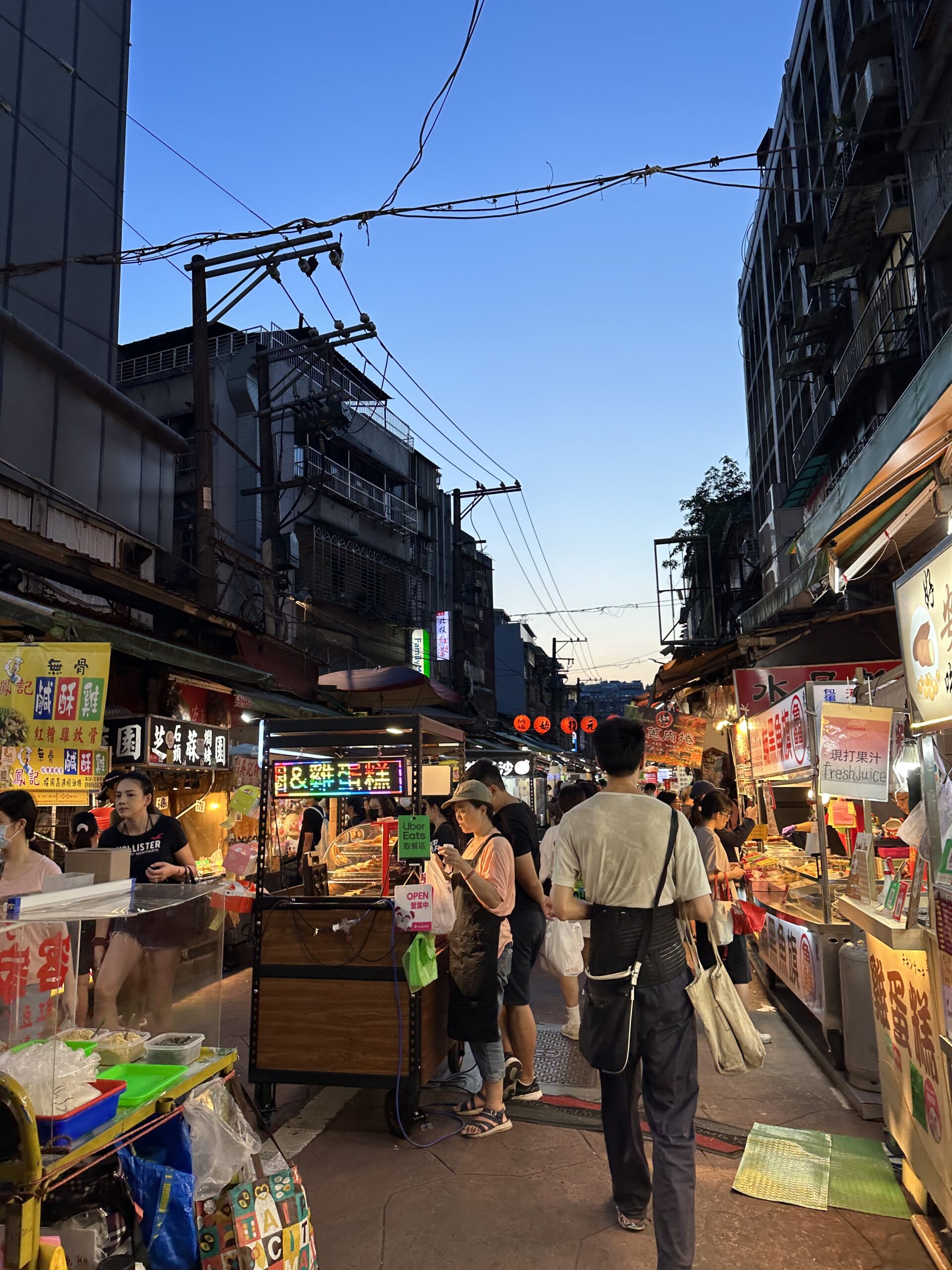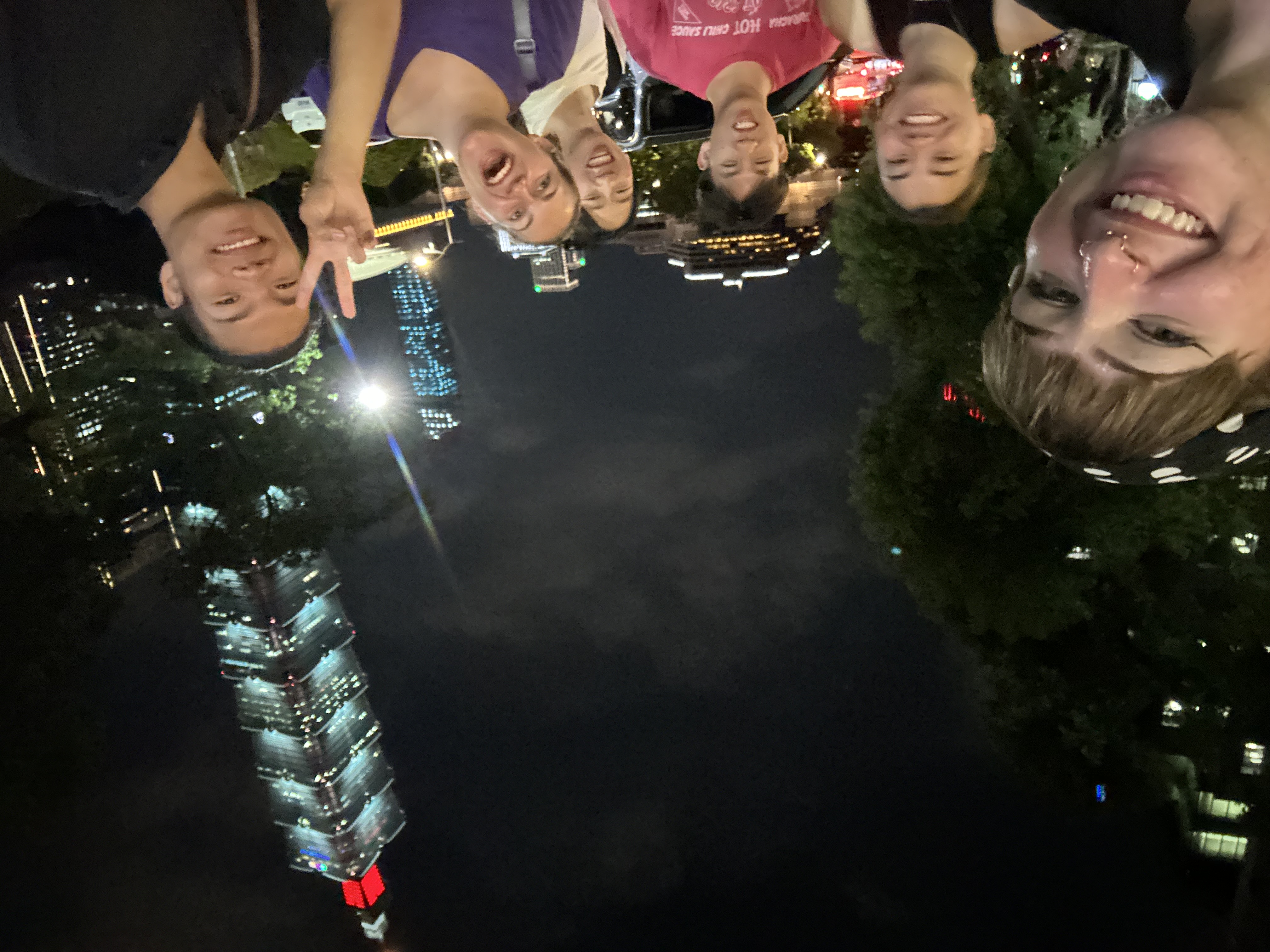
The truth about living with local roommates in Taiwan
Before coming to Taiwan, I was soooo anxious about living with strangers across the US and connecting with my local Taiwanese roommate. For context, I have studied Mandarin for one year and haven’t lived in college dorms since my freshman year of college. Through CET, we are placed in a shared living experience with one local roommate, and five Americans. Although I can speak enough Mandarin to ‘survive,’ I was worried about how well I could express my needs to others (in Mandarin) in a shared living environment. On the plane ride from Chicago to Taiwan, I thought, “What if I cannot express my needs in Mandarin to my roommate? How much English and Mandarin are we expected to speak? Are we sharing a room together? Are they going to help me find our new apartment? What are their habits like?”
Luckily, a few days before arrival, we were put into a group chat with our new roommates. I quickly learned I would be the first of my peers to arrive in Taiwan (at 4am!!) – which means I would be the first of my housemates tasked with finding the exact location of our apartment. I was also worried about this— because I’ve never traveled to Taiwan before, and I am unfamiliar with the landscape.
Upon arriving in Taiwan, I was greeted by CET staff and handed my keys, university ID, and cash/instructions for taking a local Taxi. I was paired with another student in the Taxi– as we had different but close drop-off points. Leaving the Taoyuan airport and watching the sun rise over the mountains was a truly magical experience– especially after flying for 16 hours in the dark.
With my taxi-mate, we admired the lush green landscape of Taiwan’s mountains as we drove towards Taipei and exchanged a few words in Mandarin. There is a stereotype in China/Taiwan of Taxi drivers hearing 白人 (white people) speak Mandarin— often, they fire off in rapid questions, “你說中文嗎?啊!你說中文不錯! 你覺得。。。(Do you speak Mandarin? Your Mandarin is not bad! Do you think…)” which is exactly what happened to me and my taxi-mate. We were both intimidated/intimidated to speak Mandarin after enduring a 16-hour flight — so we simultaneously responded to our driver with, “一點! (A little!) Luckily, he did not overload us with a ton of questions.
After driving through the mountains for 40 minutes, our driver took an exit into Taipei. Looking out the window, I was wide-eyed looking at all the signs in Mandarin, and noticing that every street corner had a 7/11 or a Family Mart. Before I knew it, my driver dropped me off at the intersection of my street and drove off. Now, alone– I was faced with the challenge of figuring out which of my three keys would open what door, as the door to get into the main building of my apartment was unclear.
The street was quiet, lined wall-to-wall with scooters and bikes. I expected to see people walking around getting ready to go to work (as it was 6 a.m.), but I was the only person on the street that morning. After sticking my keys in random doors along my street, I finally opened one heavy metal door– which led me into the entryway of my apartment. My next challenge was figuring out what apartment I lived in, because the doors are not labeled with apartment numbers, and there are two apartment doors on each floor. My keys said my apartment is on the third floor– so I went up three flights of stairs– only to realize that my keys were not working. After messaging the staff, I learned that I did live on the third floor– as the entryway counts as the first floor (we count this level as the “ground” floor in the US, so I technically live on the 2nd floor in US standards)– and I eventually fit my key in the right lock.
As the day went on, I greeted my new roommates outside our apartment and helped them bring their luggage upstairs. In my house, we have five Americans from various locations in the US, and one local Taiwanese roommate. Our local Taiwanese roommate texted us that he wouldn’t arrive until 8 pm that day (and most of the Americans had moved in by 5pm)— so we were curious about his language level, his interest in participating in CET’s local living exchange, etc. Our local roommate texted us beforehand, warning us that his English is “not that good,” but upon having a conversation– we learned he spoke perfectly fine! We ended our first night as a house eating Passion fruit and talking about where we’re from and our language experience. I also learned my first Taiwanese greeting, “你食飽未 lí chia̍h pá bōe/bē– Have you eaten?”
As the week passed, our house went out to eat together almost every night. In our district, you cannot walk more than two steps without finding a place to eat– which makes decision paralysis so real. At first, I was really nervous about ordering food in Mandarin– as I did not understand every question a hostess would ask me– but as I ate out with my roommates, I began to feel more confident in my speaking and listening abilities. Often, menus are placed at tables, and you check off what you want to eat. The menus are in Mandarin, so I use Google Translate lense/photograph to figure out what I’ll order.
Often, our house will walk past restaurants and sit down at ones we find most visually appealing. We’ve tried 臭豆�
� (Stinky tofu),牛肉面 (Beef noodle soup), 飯糰 (Rice burrito with various fillings),雞排 (Chicken steak). Even if you feel food fatigue from eating Taiwanese food, we’ve found American, Israeli, Japanese, Italian, and French food on our street! Every meal we’ve had, we learn more about each other’s humor, language experience, and individual experiences in the US/outside the US.
One night, we spent several hours explaining American slang (specifically Gen-Z online language) to our local roommate, and going back and forth explaining it in Mandarin and English. Another night, we played mahjong for a few hours and only played in Mandarin. This weekend, we plan to make our comfort foods from the US (I plan on making Latkes or Mac and Cheese) and having a house potluck. A week ago, I could not have imagined the dynamics of my house, or the routines each of us would have– but I am pleasantly surprised by how much fun I have taking the bus to school with my housemates every day, or enjoying each other’s company as we study for our classes. The reality of living with local roommates from Taiwan and other American students is that you may have too much fun– and accidentally stay up past midnight talking about funny stories or eating at local 雞排店 (Chicken steak shops).

